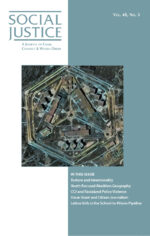Description
The End of Disarmament and the Arms Races to Come
Lichterman and Cabasso demonstrate the dangers posed by the right-wing equation of collective security with militarism. The authors document evolving doctrines and weapons programs, many incubated in the pre-September 11 period. Special attention is given to the 2002 Nuclear Posture Review (NPR), which amounts to an unequivocal rejection by the U.S. of most of the steps it committed to just two years earlier, as well as of nuclear disarmament itself. The entire thrust of the NPR is not to make weapons reductions “irreversible,” but rather to assure for decades to come that an enormous force of nuclear warheads and delivery systems can be reconstituted, and that new and improved nuclear weapons can be produced. Thus, prospects for a new era of cooperative global security have been replaced by the reality of an increasingly unilateral and aggressive U.S. foreign policy, in which the potential use of nuclear weapons is again becoming “thinkable.” Moreover, U.S. behavior in the international arena is eroding the network of security treaties that has helped to stem the spread of nuclear, chemical, and biological weapons, thus contributing to the creation of conditions that threaten to spark new arms races. Non-proliferation of nuclear weapons should be combined with the demand by non-nuclear-weapons states for commitments from the nuclear-weapons states, including the principle of irreversibility as applied to nuclear disarmament and related arms-control and reduction measures, as well as an unequivocal undertaking to accomplish the total elimination of the nuclear arsenal.
arms control, nuclear weapons, disarmament, arms race — Bush administration, Nuclear Posture Review, nuclear non-proliferation
Citation: Social Justice Vol. 29, No. 3 (2002): 73-93

